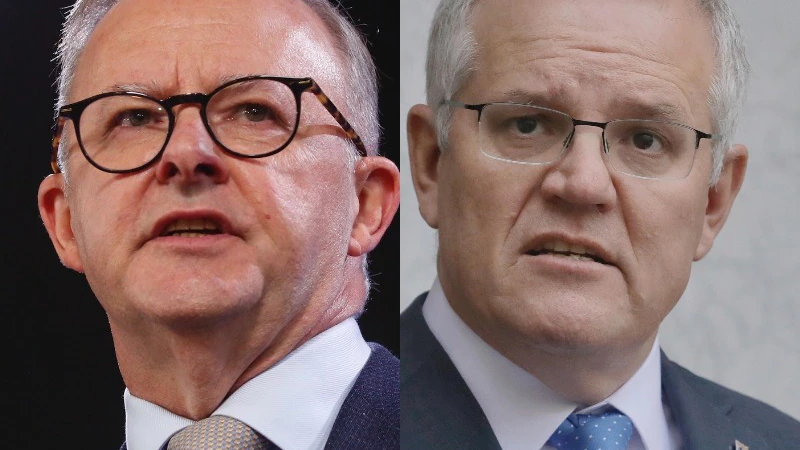
Health was a dominant election issue in 2016 and 2019, yet according to media monitoring data powered by Meltwater and analysed by London Agency, it is failing to cut through in the media coverage and on social platforms despite the country being in the midst of a pandemic.
This defies popular consensus earlier this year that the election would be a referendum on the government’s handling of COVID-19. That health hasn’t been a priority makes the task of getting a message out in the media that much harder for medical technology, IVD and pharmaceutical companies.
Samples taken from two recent weeks of the campaign (20th to 26th April and 27th April to 3rd May) found Labor has consistently maintained the higher share of voice over the Coalition in traditional and social media, with other parties struggling to land at all. Share of voice is defined as the of total number of media stories and social media conversations about an organisation, compared to those of its competitor.
While plenty of policies have been announced by both major parties, this data suggests only a couple have been driving the bulk of the media discussions on health.

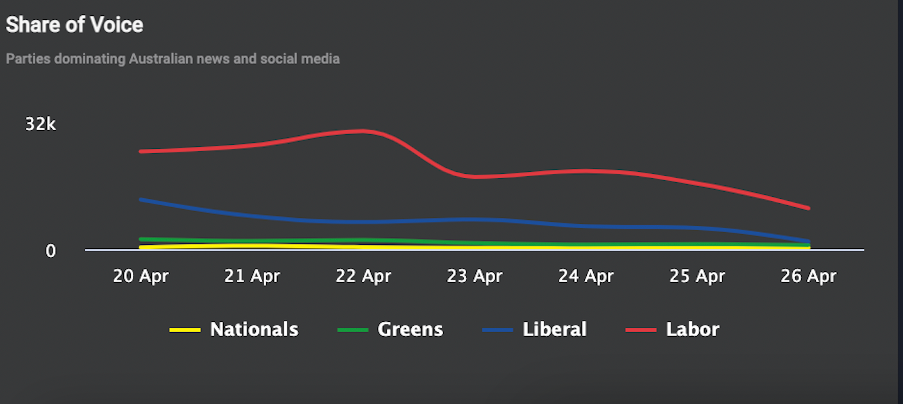
In the week leading up to 26th April, trending themes skewed towards the Coalition, which would explain why words such as “economy”, “political marketing opportunity” and “truth” appeared frequently; all terms associated with discussions on the Prime Minister.
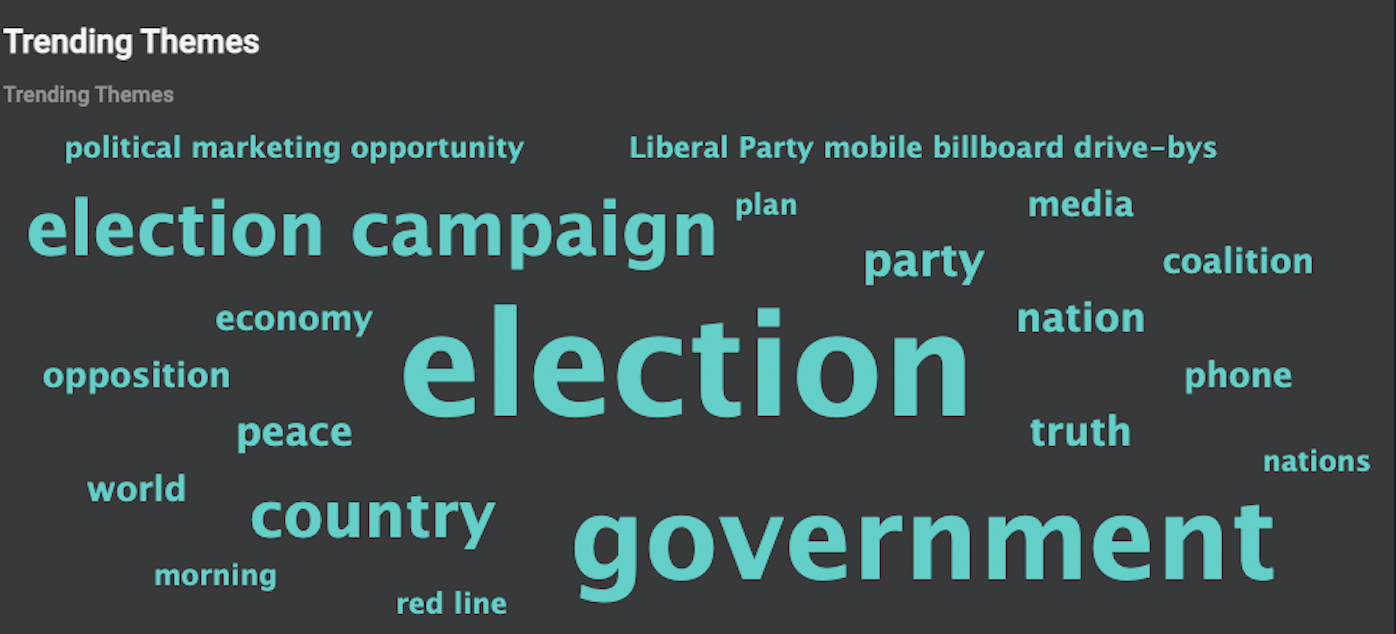
The past week has the seen the focus switch to the cost-of-living crisis, with related terms such as “inflation”, “interest rates” and “mortgage” featuring prominently.

In both weeks, health took a back seat to more salient as war in the east and economic issues in the west raged on.
When you dissect health as an election issue*, the Coalition leads in terms of volume of coverage, owning 52% of the discussion. However, it also trends more negatively on sentiment at 36% and only 13% positivity, compared to Labor’s even split for negative and positive coverage at 22%.
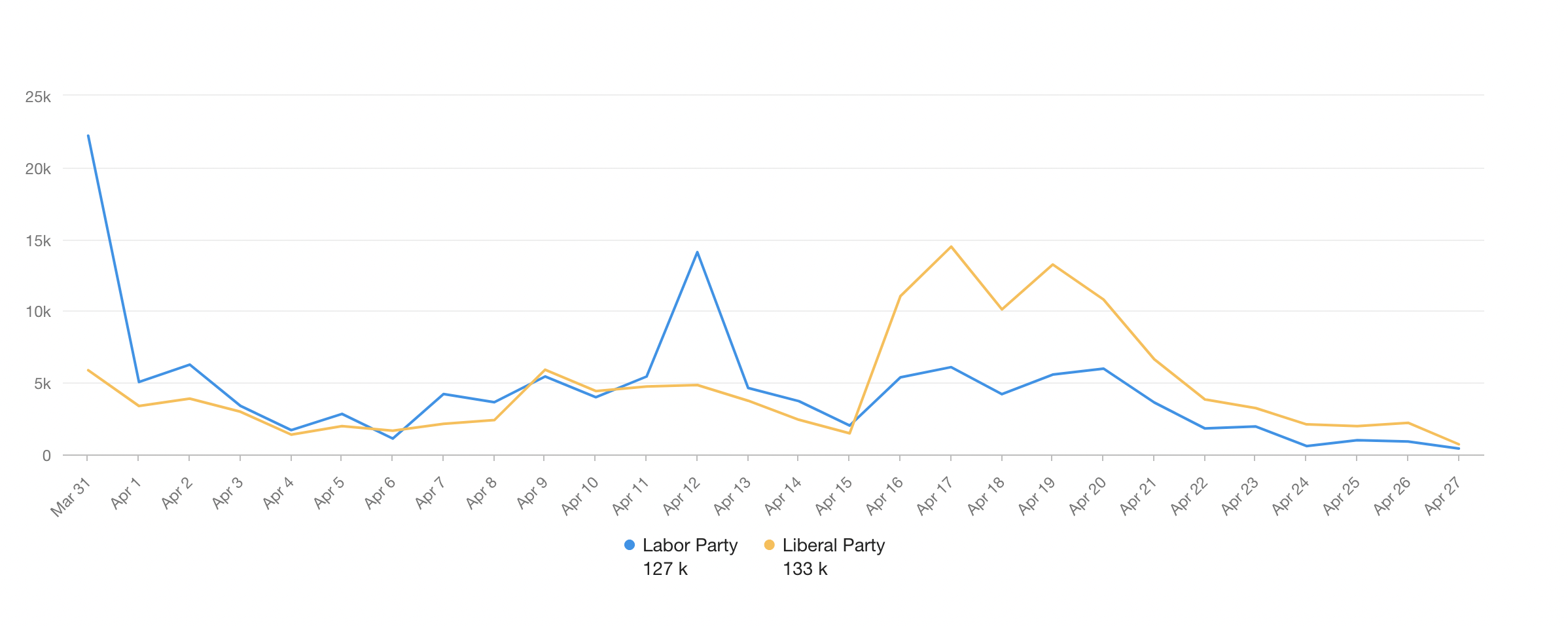
The disparity in sentiment correlates closely to the key themes dominating health discussions on both parties.
Labor is running on a traditional platform of aged care, Medicare and funding for hospitals, which pulls through in media coverage.
Conversely, the word “cuts” appears frequently in Coalition-focused health stories, while the Prime Minister’s misplaced “blessed” comment on not having children with disability drew fierce criticism. Actual policy announcements appear to have been lost in the noise, which will be a concern for the government.
Interestingly, the Coalition’s attack lines aimed at Labor for re-running the 2016 ‘Mediscare’ campaign have not carried into social media conversations. Conservative-supporting News Corp titles running quotes from key Coalition spokespeople have done most of the heavy lifting on this topic.
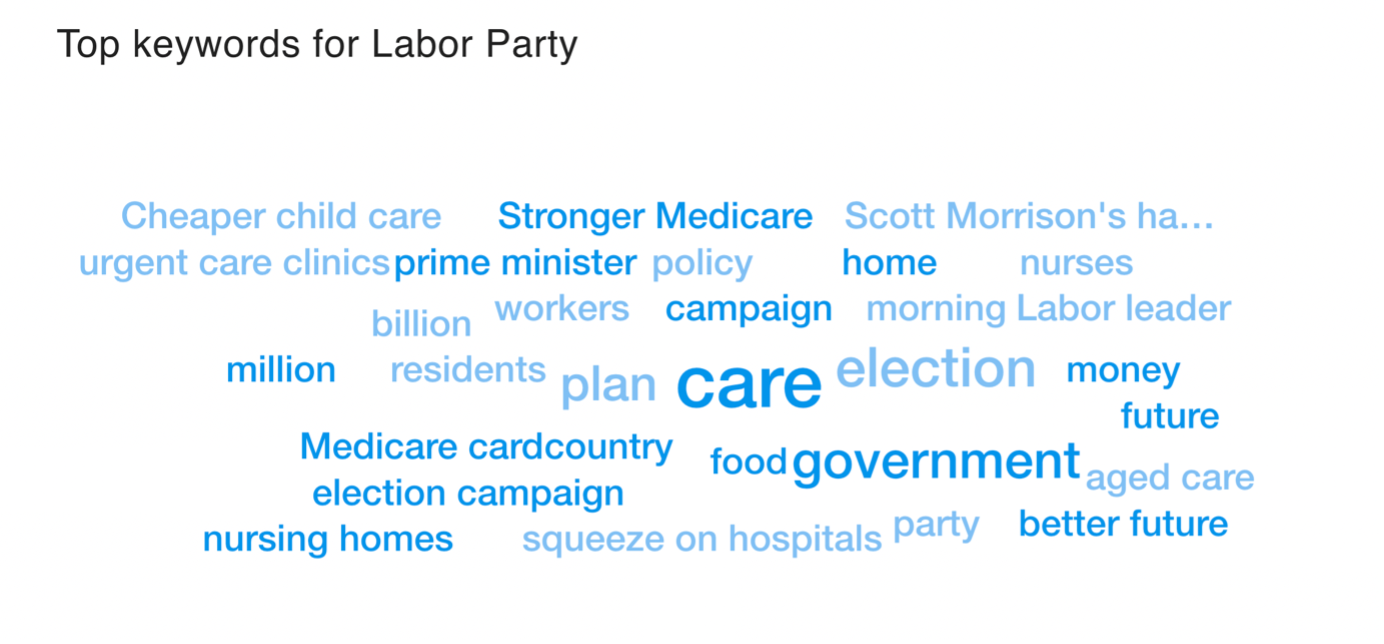
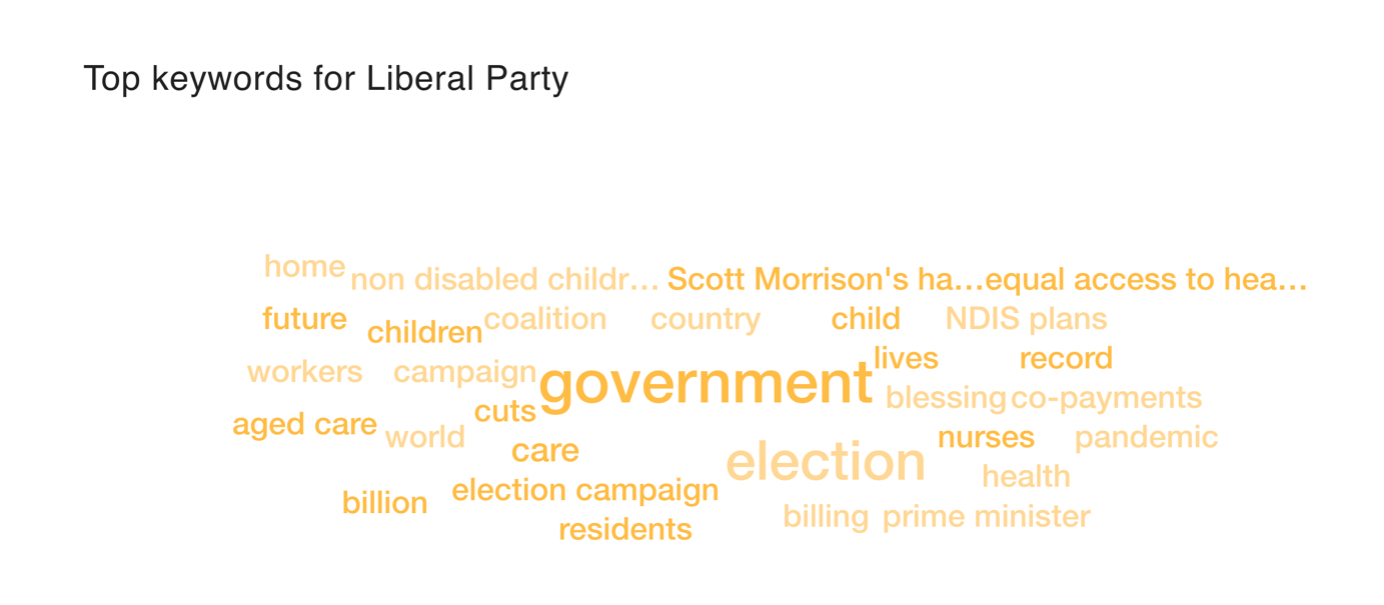
John Emmerson, Managing Director, London Agency says it is surprising that COVID-19 has been a tepid issue so far this campaign.
“So far in this election health has been the dog that hasn’t barked. The pandemic has dominated our lives for the last two years, so it is surprising that reporting of the federal election hasn’t followed trends seen in state elections where the handling of the pandemic has been decisive in the final outcome.
“It’s far for from over, but what we’re seeing are more traditional issues dictating the health discussion. This is probably welcome news for a COVID-weary electorate, but the health industry should note the pandemic dividend is only temporary and now might be the time to start preparing for what comes next.”
*Health media data covers period 1st to 28th April 2022. General election data covers up to 3rd May.